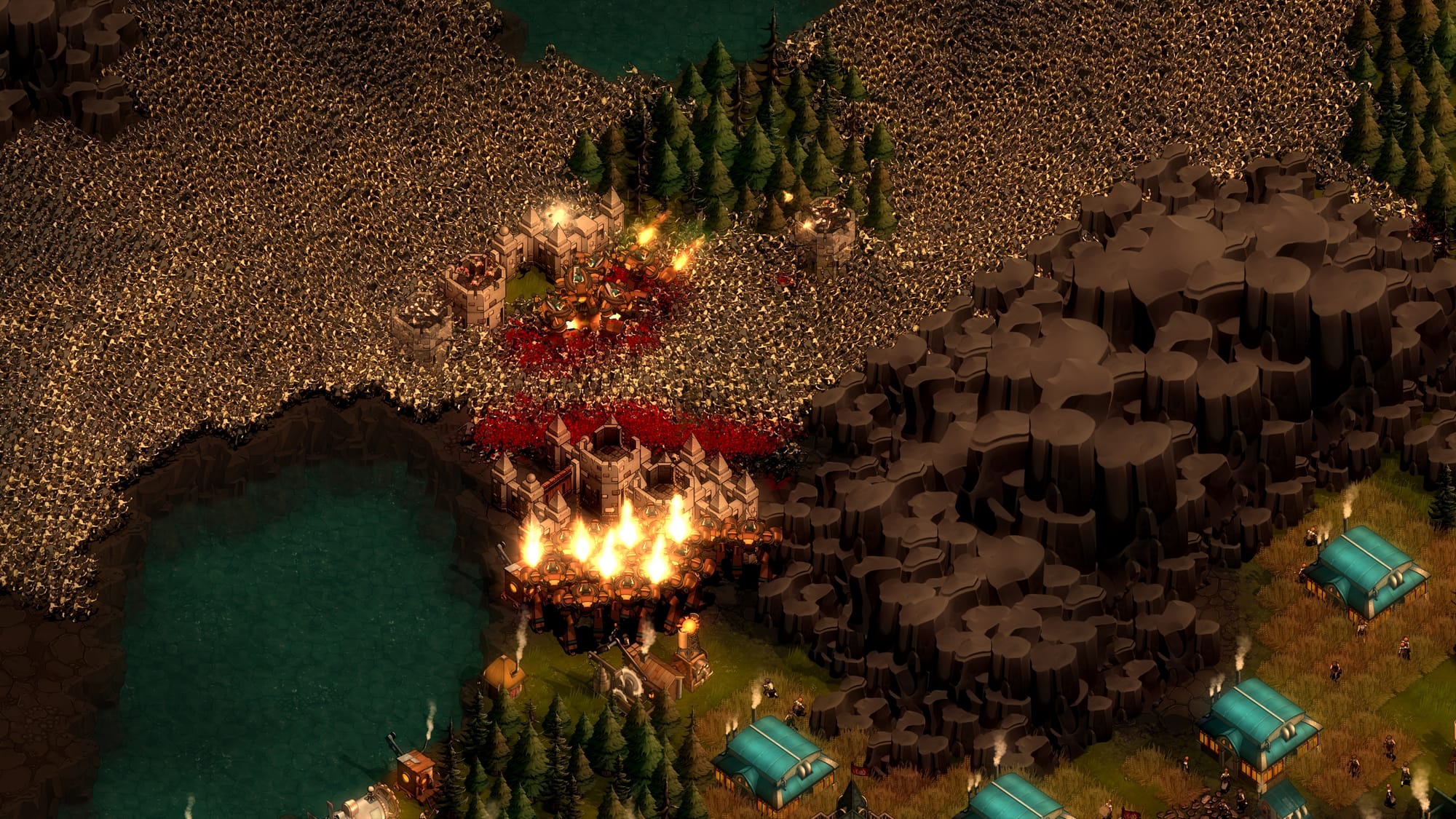They Are Billions is a steampunk zombie survival RTS, which is probably not the most enticing collection of words and might tell you a lot about the particular moment it emerged from. On the other hand, it’s a game made of everyone’s favorite RTS mission archetype: the hold-out mission. Carentan in Company of Heroes, the mountaintop defense at the culmination of Warcraft III, any number of missions in the Terran campaigns of StarCraft… the list of all-time classic missions goes on. Homeworld 3 recently made a couple worthy additions to the list as well.
Structurally they tend to solve the biggest problem with RTS games, which is that they are so fast-paced and ask so much of the player that it’s rare they give you a chance to sit back and watch the fireworks. They were so popular you could argue they spawned the tower defense genre, which goes back to StarCraft and really took off with special game modes for Warcraft III. They Are Billions just winds the clock back to the Age of Empires II era with an RTS where the entire game is about surviving huge onslaughts of enemies that will gratifyingly march headlong into your defenses.
It’s also a game designed to be very dangerous to me personally. It’s conceptually straightforward, but lends itself, via its No Reloads survival mode, to repeated runs. I constantly work to beat the odds and get a high score, but I can pour hours into a run only to have it completely undone due to an obvious-in-retrospect error. As the zombies overrun my sprawling colony and its little clockwork defenses crack and then crumble, I’m primed to move on to the next run immediately.
The problem is that I’m never sure I want to. This past winter, when I finally had a week to myself and was still reeling from grueling months of medical emergencies involving my dog Mina, I had a stack of great games I’d wanted to dig into before the end of the year. The trouble was, while I had a lot of good games to play, I felt like they were all too good to be wasted on the tatters of mental energy and slivers of free time that I had available. Restless scrolling through my Steam library brought They Are Billions back to my attention. Five minutes later, I was launching into my first game. “I’ll just mess around in there until I figure out what I really want to play,” I told myself.
For months, I found myself playing it whenever I had a few loose minutes. It went from feeling like a welcome return to an old favorite to something closer to a fixation. I'd quit the game and consider watching or playing something else, but the only thing I could think about is how much better I think I’d do on the next run.

I don’t know if it was always like this for me. However, when I think back to my love affairs with Europa Universalis III, Medieval: Total War, or Civilization II, they had a lot of the same characteristics. I internalized these games so much that I could almost play them on mental autopilot, racing through rehearsed steps toward the trickier parts I was dying to master.
Now, all those franchises have gotten just complicated enough that I find they require more mental investment, which both saves me from this compulsive loop but also creates the kind of friction that makes it almost too easy for me to bounce off a game entirely. There are a lot of days I don’t want to think quite that hard, so I’ll save a strategy game or a tricky RPG “for later when I have more time and I’m in a better place.” (It looks like, far from being the only one, I am part of a measurable trend.) Meanwhile, games like They Are Billions keep slipping under my guard. Hours that I didn’t think I had available to spend will go flying by, and I’ll find myself wondering, “What was the point of doing all that again and again?”
Signing up is free!
By signing up—again, it costs nothing!—you can read the rest of "Billions and Billions Served, Hundreds of Hours Burned," and receive free newsletters and emailed articles from Remap!
Sign up now Already have an account? Sign in